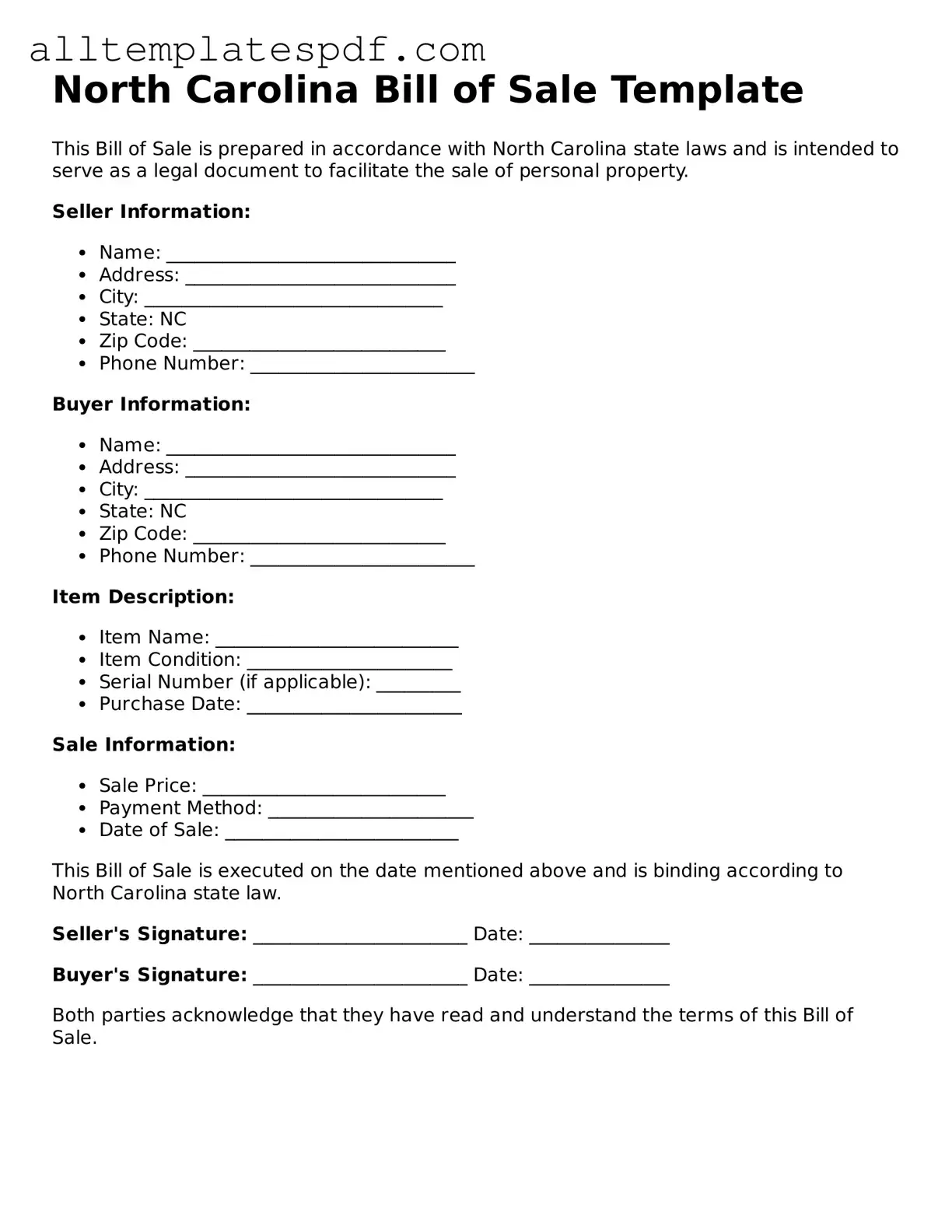Blank Bill of Sale Template for the State of North Carolina
A North Carolina Bill of Sale form is a legal document that records the transfer of ownership of personal property from one individual to another. This form serves as proof of the transaction and outlines essential details such as the buyer, seller, and a description of the item being sold. To ensure a smooth transfer, it is important to fill out the form accurately; you can start by clicking the button below.
Open Editor

Blank Bill of Sale Template for the State of North Carolina
Open Editor
Fast and easy form completion
Complete Bill of Sale digitally — fast and easy.
Open Editor
or
↓ Bill of Sale PDF Form
